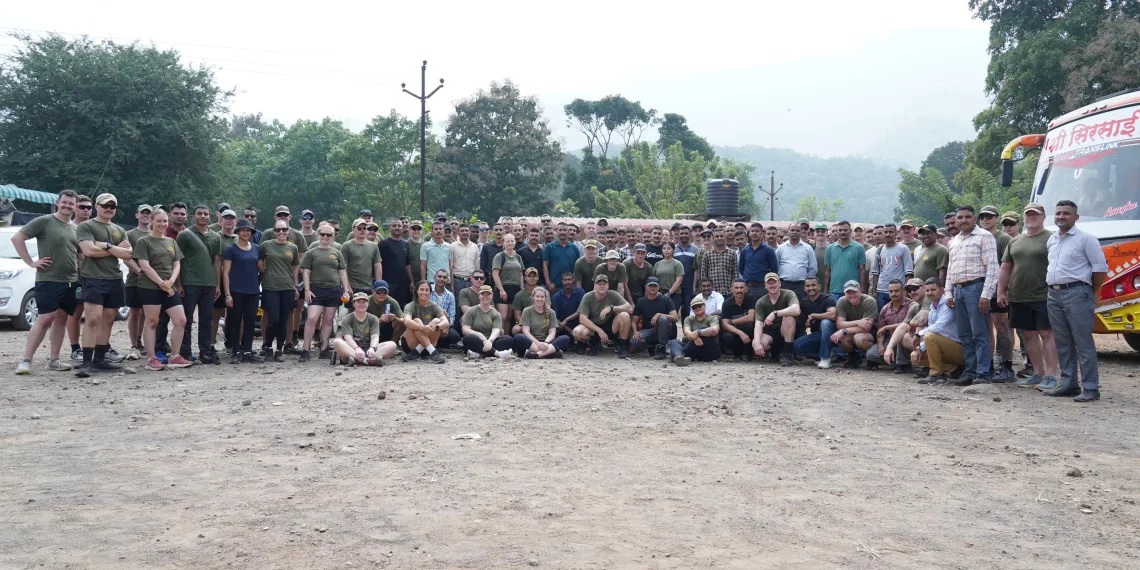Pune: The 3rd edition of the India-Australia joint military exercise, AUSTRAHIND, is currently underway at the Foreign Training Node in Aundh, Pune. The exercise, which commenced on 8th November, will continue until 21st November 2024, featuring a comprehensive two-week training program designed to enhance cooperation and interoperability between the armed forces of the two nations.
The first phase of AUSTRAHIND 2024 has already seen troops from both countries actively engaging in a variety of training activities, including physical fitness, martial arts, joint tactical planning, special arms skills etc. Participants have also been practising combat scenarios such as raiding a hostile target and administering combat first aid to injured soldiers. These drills aim to improve coordination and build mutual understanding between the Indian and Australian forces.
As part of the exercise’s social and cultural activities, both contingents participated in an excursion to the historic Sinhagad Fort near Pune, providing a cultural and historical experience. The Australian contingent also had the opportunity to visit the prestigious National Defence Academy (NDA) at Khadakwasla, Pune, on 12th November. During the visit, the participants were familiarised with the NDA’s state-of-the-art training facilities and had the chance to interact with instructor staff, gaining insights into the academy’s rigorous training environment and its legacy of discipline and excellence in shaping future military leaders.
Looking ahead, Phase-II of the exercise will focus on joint combat drills and tactical exercises aimed at further enhancing the operational readiness and interoperability between the two forces. The exercise will culminate with a 48-hour validation exercise, scheduled from 19-20 November, which will test the skills and coordination achieved during the preceding training phases.
AUSTRAHIND 2024 underscores the strong and growing defence ties between India and Australia, as both nations continue to work together to strengthen regional security and foster closer military collaboration.


